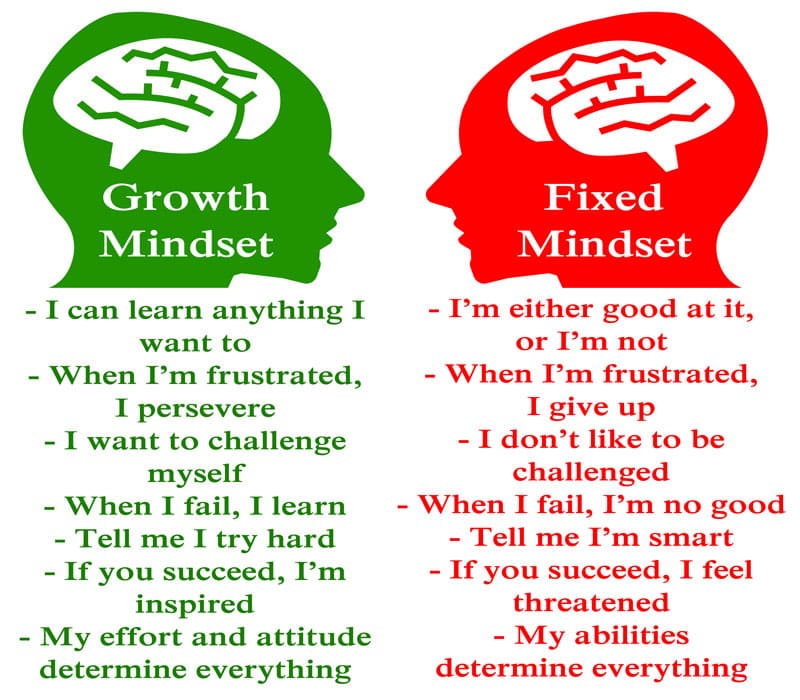
Growth Mindset compared to Fixed Mindset
Is Mindset Important for a Developing Child?
Children thrive on pleasing their parents; when your child does something well you should praise them! Have you ever said, “you are so smart” or “you are so talented”? It’s not that simple, as the way you praise them can impact their confidence and drive.
As an example, when our son started hockey 16 years ago and was learning to skate, we saw this as an opportunity to try out a growth mindset. We were determined to focus on praising his effort since we knew learning to skate would be potentially frustrating. We talked with him beforehand about how hard it would be, that he would fall a lot, but getting back up and trying again was most important. After each lesson we were enthusiastic about his efforts. Were we successful?
After a rough start, his skating improved towards the end of the eight-week session. He even started coming off the ice enthused about the progress he had made and how hard he worked. Even though he was not the fastest or best skater on the ice he was proud of his own resilience and what HE accomplished. As parents, we were bursting with pride for him!
My husband and I noticed some patterns at home and school. He would only attempt tasks that he felt confident or had already possessed a level of skill. As it turns out, what we were doing when we were praising his natural ability was feeding into his ‘fixed mindset’. With a fixed mindset, people believe their basic qualities, like their intelligence or athleticism, are fixed traits and don’t change over time. They believe their talent alone creates success—without effort.
So how do we make sure that we are praising our kids ‘the right way’ to be sure they give their full effort? One idea is to encourage them to have a ‘growth mindset’ – where people believe their skills and abilities can be developed over time through hard work.
I strongly encourage you to ask yourself how you can start incorporating this type of growth mindset approach with your children. Learn to recognize how you praise your children and ask questions such as “What did you try that was difficult or challenging today?” I bet you’ll be surprised how quickly you will see a positive impact. Good luck and let us know how it goes!
FIXED MINDSET -Intelligence is static -Leads to a desire to look smart and therefore a tendency to avoid challenges → Obstacles- get defensive or give up easily → Effort-see effort as fruitless or worse → Criticism – ignore useful negative feedback → Success of Others – feel threatened by the success of others → As a result, they may plateau early and achieve less than their full potential.
GROWTH MINDSET Intelligence can be developed -Leads to a desire to learn and therefore a tendency to → Challenges – embrace challenges → Obstacles-persist in the face of setbacks → Effort-see effort as the path to mastery →Criticism-learn from criticism → Success of Others -find lessons and inspiration in the success of others as a result, they reach ever-higher levels of achievement.
Our Cognitive Behavioral Therapy sessions can help you challenge limiting beliefs of a fixed mindset and foster the flexibility of a growth mindset.
If you have any questions or concerns about your child Achievement Balance, LLC would love to help. Please contact us at 972-410-5297

